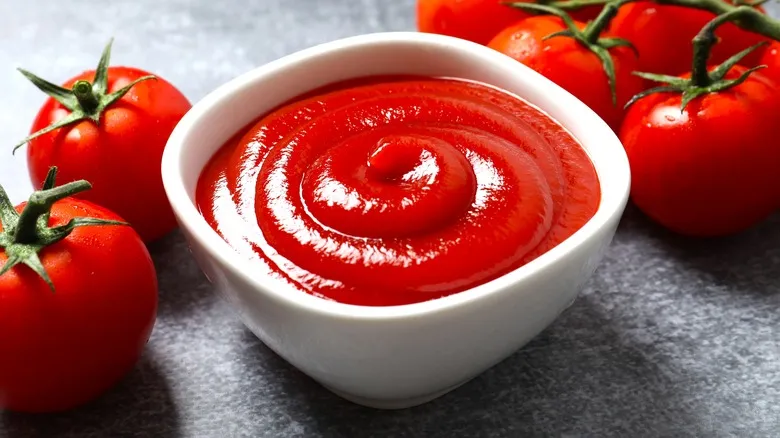James Mease invented the ketchup we know today

Today's modern ketchup wasn't invented by a chef, but by a scientist from Philadelphia named James Mease. He was the first to incorporate tomatoes into the sauce, which later gained widespread popularity when Heinz introduced its own version.
As for the name "catsup," its journey from Europe to the United States is somewhat unclear, but we may owe its introduction to Henry Heinz. In 1876, he launched his condiment under the name "catsup," but the brand soon transitioned to "ketchup," eventually marketing it in both the U.S. and Europe, which likely helped popularize the latter term. Interestingly, "catsup" has remained more prevalent in certain regions of the country than in others, a phenomenon that persists today, though the reasons for this variation are not fully understood. Despite global adaptations of both the name and the recipe, the original term "catsup" can still be found if you look closely.
Recommended

This Iconic Palm Springs Supper Club Was A Rat Pack Favorite

Harry Houdini's Favorite Meal Was A Traditional Hungarian Dinner

The Red Delicious Was Once The Apple Of America's Eye, Until Its Fall From Grace

18 Candies That Are Actually Gluten-Free
Next up

